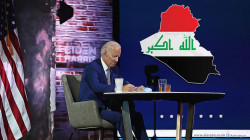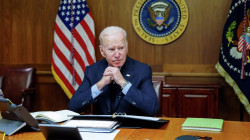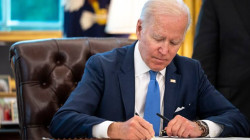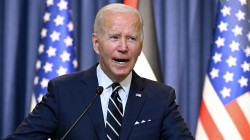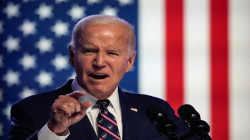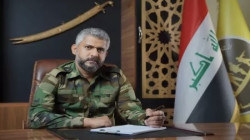Biden: Iraq's gridlock is a part of less pressurized, more integrated challenges
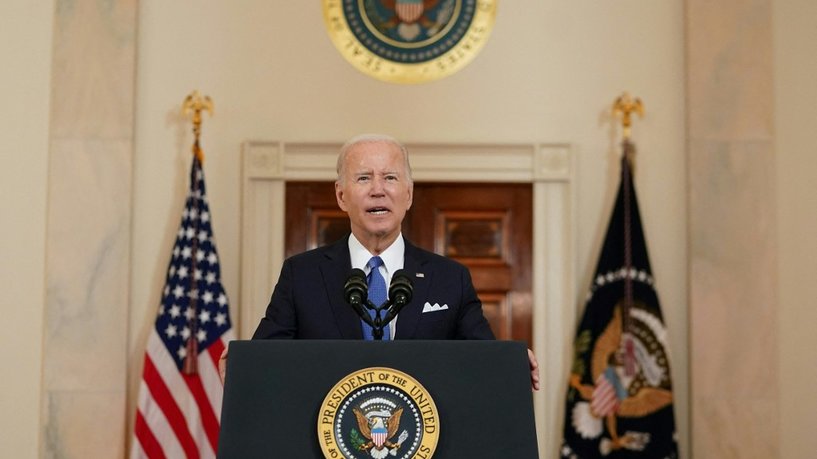
Shafaq News/ US President Joe Biden said he will be the first American president to fly from Israel directly to Saudi Arabia this week when he is set to visit those countries on an official trip to the region, in a “small symbol” of the warming ties between Israel and the Arab world and “steps toward normalization.”
In a Washington Post opinion article on Saturday titled “Why I’m Going To Saudi Arabia, Biden said he will make the trip from Israel to Jeddah, Saudi Arabia where “leaders from across the region will gather, pointing to the possibility of a more stable and integrated Middle East, with the United States playing a vital leadership role.”
The US leader said he will be “the first president to fly from Israel to Jiddah [Jeddah]… [in] a small symbol of the budding relations and steps toward normalization between Israel and the Arab world, which my administration is working to deepen and expand.”
In his op-ed Saturday, Biden said the region had changed, and a “secure and integrated Middle East benefits Americans in many ways.”
“Its waterways are essential to global trade and the supply chains we rely on. Its energy resources are vital for mitigating the impact on global supplies of Russia’s war in Ukraine. And a region that’s coming together through diplomacy and cooperation — rather than coming apart through conflict — is less likely to give rise to violent extremism that threatens our homeland or new wars that could place new burdens on US military forces and their families.”
The US leader said the Middle East he will be visiting this week “is more stable and secure than the one my administration inherited 18 months ago.” Without naming him, Biden said that during the administration of former president Donald Trump, attacks against US troops and diplomats in the region increased, the war in Yemen escalated, and Iran broke ahead rapid acceleration of its nuclear program after the US “reneged on a nuclear deal that was working,” a reference to the 2015 nuclear accords between Tehran and six world powers including the US under the Obama administration.
Biden said he worked together with leaders across the region, including the king of Saudi Arabia, to “lay the foundation” for a truce in Yemen to deliver lifesaving humanitarian assistance, and “reunited with allies and partners in Europe and around the world” with respect to Iran, “to reverse our isolation.”
“Now it is Iran that is isolated until it returns to the nuclear deal my predecessor abandoned with no plan for what might replace it,” he wrote.
On Riyadh, Biden said his aim was to “reorient — but not rupture — relations with a country that’s been a strategic partner for 80 years.”
“Today, Saudi Arabia has helped to restore unity among the six countries of Gulf Cooperation Council, has fully supported the truce in Yemen and is now working with my experts to help stabilize oil markets with other OPEC producers,” wrote Biden.
As president, Biden said it was his “job to keep our country strong and secure” and “counter Russia’s aggression, put ourselves in the best possible position to outcompete China, and work for greater stability in a consequential region of the world.”
“To do these things, we have to engage directly with countries that can impact those outcomes. Saudi Arabia is one of them…,” he added, defending the planned visit which has garnered criticism.
Biden said the region has its many challenges — including “Iran’s nuclear program and support for proxy groups, the Syrian civil war, food security crises exacerbated by Russia’s war against Ukraine, terrorist groups still operating in a number of countries, political gridlock in Iraq, Libya and Lebanon, and human rights standards that remain behind much of the world” — but is now “less pressurized and more integrated.” This is thanks in part to growing ties between Israel and Arab nations, Iraq’s diplomatic role in mediating between Saudi Arabia and Iran, and more regional connection and engagement, described by Jordan’s King Abdullah II as a “new vibe.”
“These are promising trends, which the United States can strengthen in a way no other country can. My travel next week will serve that purpose,” said Biden.
Israeli-Arab security overtures have multiplied since the 2020 Abraham Accords negotiated under the Trump administration normalized relations between Israel and four Arab League nations. They have grown further since the Pentagon switched coordination with Israel from US European Command to Central Command, or CENTCOM, last year. The move grouped Israel’s military with former Arab opponents, including Saudi Arabia and other nations that have yet to recognize Israel.
Encouraging Arab nations to strengthen security ties and overall relations with Israel is one of the aims of Biden’s travels to Israel and Saudi Arabia next week, National Security Council spokesman John Kirby said Thursday.
